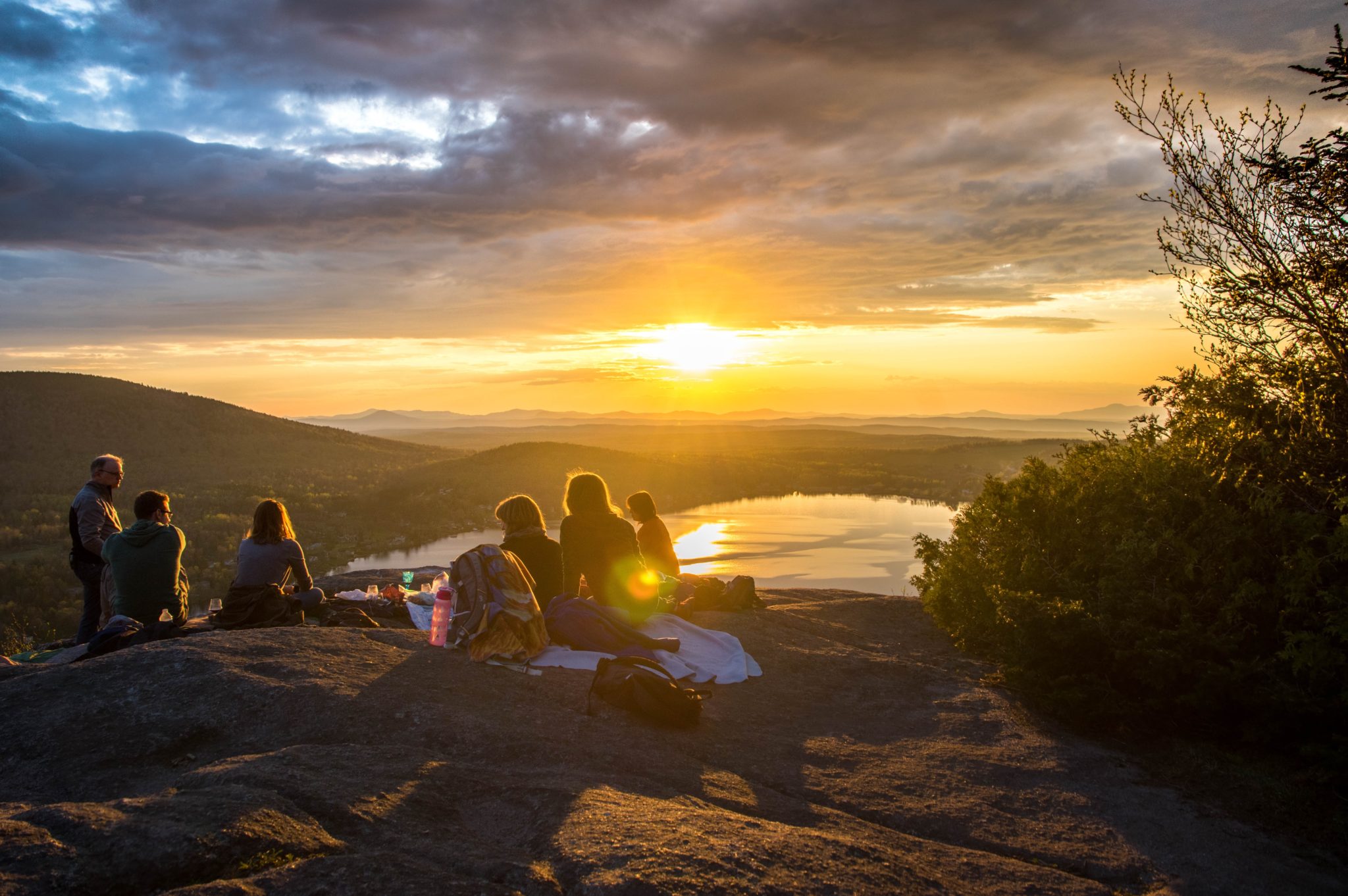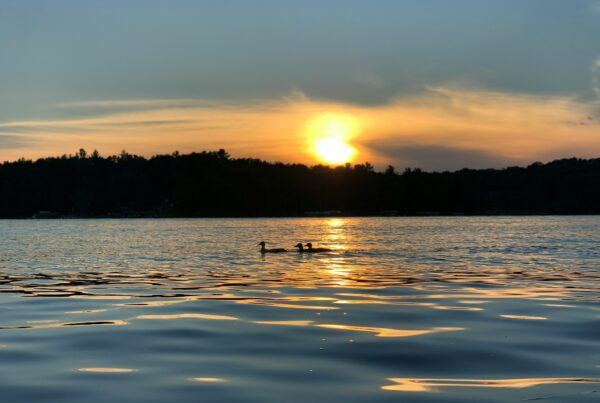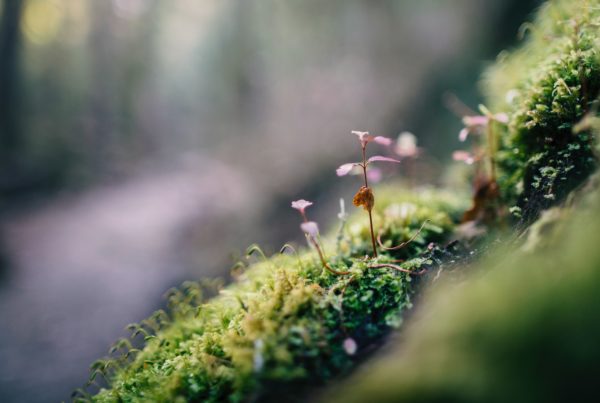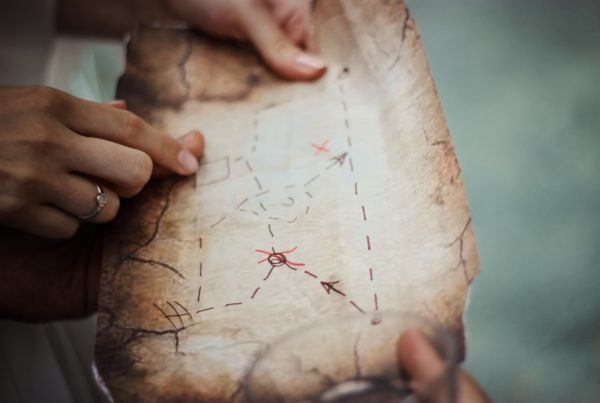This is the second article in a series on creation care through the church year.
T o care for creation, we can start by simply seeing creation and seeing our own creaturehood—our own beloved, vulnerable, and interconnected place within a wondrous but groaning creation.
But like any human thing worth doing, attending to and healing creation isn’t only an individual endeavor. It is best in community. The gift of community is that we rely on other people to understand, to act from, and to enjoy what it means to be creatures within God’s wider creation.
And community is often built by speaking.
The gifts of the Holy Spirit at Pentecost
We see this in the celebration of Pentecost. Pentecost is an underemphasized church holiday for many traditions, which is too bad. Like seeds are to food, Pentecost is to church today; without Pentecost, there is no church where you or I live. Acts 2 recounts how, on the day of Pentecost, the Spirit descends and rests “as of fire” upon the disciples, unleashing on them the power of signs, sharing, and—crucially—speech. The word spreads to Jews present from every nation: “How is it that we hear, each of us, in our own native language?” they ask.
The Spirit’s gift to speak and be understood across languages and cultures unlocks astonishing new levels of community among the people gathered. This is why commentator Dr. Willie James Jennings calls this event “the revolution of the intimate.”
He elaborates: “The Spirit creates joining. The followers of Jesus are now being connected in a way that joins them to people in the most intimate space—of voice, memory, sound, body, land, and place. It is language that runs through all these matters. It is the sinew of existence of a people.”
In Pentecost, the Spirit creates communion and belonging where there are human barriers to that, including language and culture. The Spirit forms new community through the story of Jesus, testimony, and shared speech.
Of course, this does not mean the believers always understand one another or agree after this event—far from it. But Pentecost is nonetheless a miracle, an act of reconciliation given for the sake of new creation. As Jennings concludes: “only the gracious work of God in creation matches this moment of prevenient … untamed grace.”
Talking about creation care
We surely need this untamed grace again today. In church and society, it seems like we live quite a distance from Pentecost’s miracle to speak and understand across languages and backgrounds.
This seems especially true in speaking of our ecological crises. When it comes to responding to our shared environmental dilemmas, we face a variety of challenges: political, economic, technical, mental. But we also face the challenge of speech. As ecological crises mount, extreme weather events hit harder and more frequently, and public discourse is strained, there is an urgent need to speak across societal lines if creation care is to be a shared endeavor.
And yet, speaking about creation care is not always easy. For example, climate change, while perhaps the greatest overall threat to creation we’ve seen, is also the consistently most politically divided topic in the U.S. The effect is that many people consider climate change controversial (or even disputable), and avoid the topic to reduce the likelihood of social conflict.
(Think about the last time climate change, or biodiversity loss, or other ecological topics came up in casual conversation. What was it like? Did the conversation stay there, or soon shift to more comfortable territory?)
Moreover, we often struggle to know how to talk about it. Climate change is immense, can challenge our worldviews, and often brings up a variety of strong emotions—which strains our ability to put language to it. This is why people, like the philosopher Glen Albrecht (inventor of the term solastalgia) and contributors to the crowdsourced Bureau of Linguistic Reality, have seen the need for new words to fit our current era.
It can be tempting to just practice creation care rather than talk about it. But talking about creation care is crucial. For one, as the writer Eula Biss has observed: “You can’t think about something if you can’t talk about it.” We can think of many arenas in which this is true—money, race, sex, shame, etc.—but certainly ecological challenges. To put words around something is part of the process to clarify and deepen one’s understanding of it. Given that the world must begin to reverse ecological damage without further delay, we need this to penetrate our understanding by finding language together for 1) what is happening, 2) how it is affecting us, and 3) how we can contribute to repair and healing.
Day-to-day speech with one another is not only how we learn, deepen our understanding, and unpack our emotions, but it is also a means of creating solutions—since speech is often the first step to creativity.
Conversation builds connection and collaboration
This is part of why, when it comes to climate change, talking about it is doing something about it, says Dr. Katharine Hayhoe. In fact, the Christian climate scientist and expert communicator says talking about it is the most important thing any of us can do about climate change. Her book, Saving Us, offers a positive vision of how we can all learn to find common ground and speak with one another about the ecological and moral crises presented by a warming world.
Dr. Hayhoe does this not with facts or science (though she certainly grounds her approach in science). In her research, she has seen repeatedly that the way to productive and meaningful conversations on topics many have found to be overwhelming, triggering, or unproductive is to emphasize shared values, experiences, care, and connection. She writes:
“By bonding over the values we truly share, and by connecting them to climate, we can inspire one another to act together to fix this problem. But it all begins with understanding who we already are, and what we already care about—because chances are, whatever that is, it’s already being affected by climate change, whether we know it or not.”
Speaking with one another on these things is not easy. But conversation builds connection and collaboration. It begets creativity and shapes culture.
Speaking is a critical part each of us can play because we are social creatures. One of the most amazing (though occasionally maddening) things about humans is how highly cultural and social we are. Despite how independent we might fancy ourselves, we are prone to one another’s influence. We see this not only in what we talk about and how we talk about it, but also in how we live and behave.
Here’s the upshot: what we talk about and model for one another determines one another’s standards and understanding. We consistently underestimate how much we influence one another through our speech and behaviors. Whether we always know it or not, we continually look to one another to assess the risks we face, the behavior that is acceptable, and the achievements that are possible. This can be used to positive ends through the topics we choose to uplift and the ways we model creation care in our own lives.
Will we make mistakes as we interact on these matters? Of course. It takes practice and there is always room to grow. But it is worth taking the risk for creation.
Here is Dr. Hayhoe’s advice for meaningful climate change and creation care conversations:
1) bond: find common ground, listen with curiosity, and share personal stories.
2) connect: show respect and relate others’ values to creation care.
3) inspire: discuss what solutions are available, including what you’ve tried yourself.
These are good places to begin as we speak and seek to understand one another for the good of creation. In this era when speech is difficult, each of us can do our parts to join the Spirit’s ongoing revolution of the intimate to break through old patterns and relational boundaries. And we can pray for God’s untamed common grace to extend the creative, boundary-crossing, communal work of Pentecost across humanity as we seek to grapple with the challenges and possibilities of our age together.
Resources for creation care
- Willie James Jennings, Acts: eminent theologian offers a commentary on this revolutionary book of the Bible in matchless tone.
- Katharine Hayhoe, Saving Us: A Climate Scientist’s Case for Hope and Healing in a Divided World: Christian climate scientist and communicator offers a winsome, humble, humane way to find shared values and work on solutions shoulder-to-shoulder. (See also her popular TED talk.)
- Debra Reinstra, Refugia Faith: Seeking Hidden Shelters, Ordinary Wonders, and the Healing of the Earth: Calvin University professor Debra Reinstra offers a Christian spirituality and practice for an altered creation.
Disclaimer: Some of the links in this article are affiliate links, meaning that, at no cost to you, we will earn a commission if you click through and make a purchase. However, we were not paid to review or recommend any of the links on this page.

Nate Rauh-Bieri
Nate Rauh-Bieri (M.Div.) attended the UN Climate Conference (COP26) representing the Climate Witness Project as part of the Christian Climate Observers Program. He lives and occasionally writes in Grand Rapids, Michigan.



